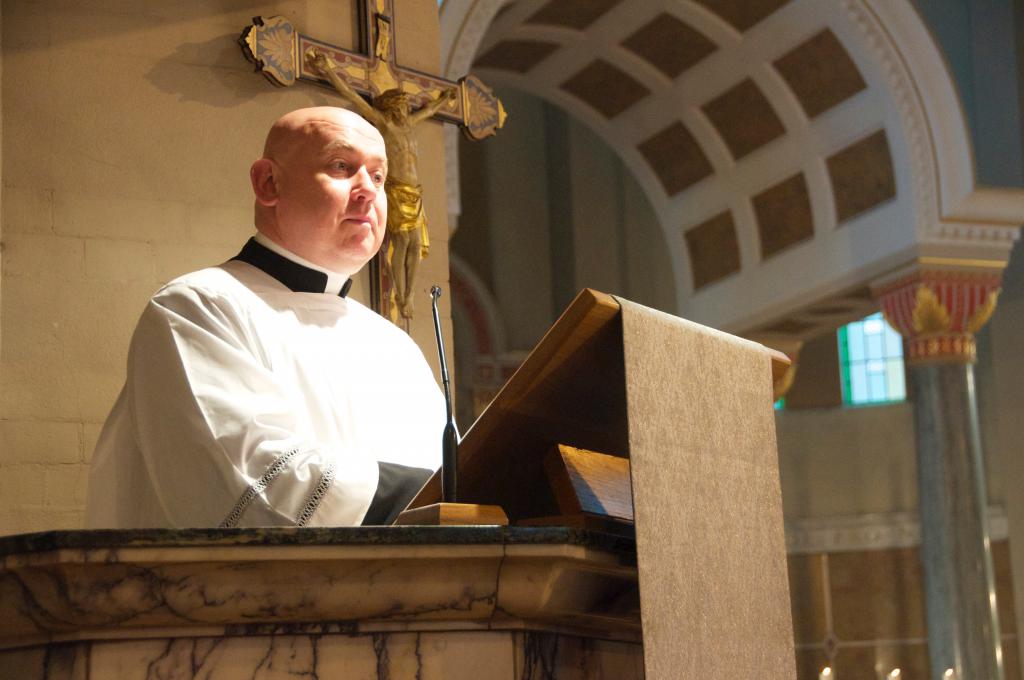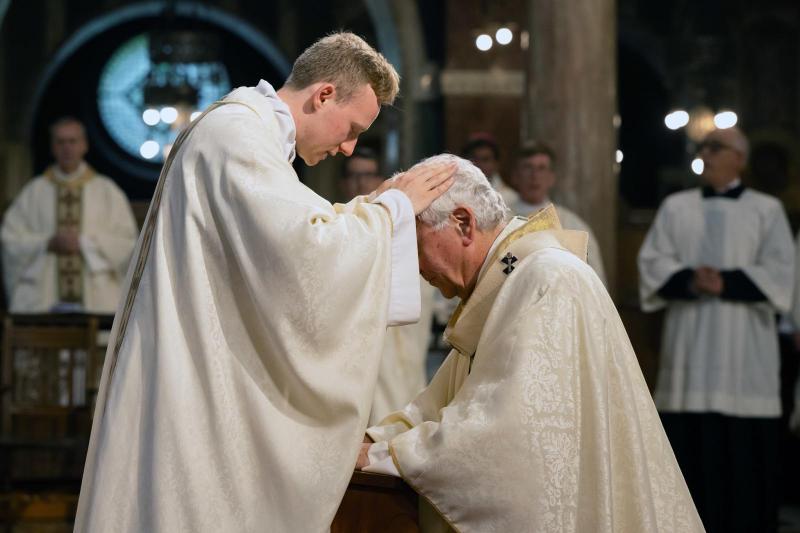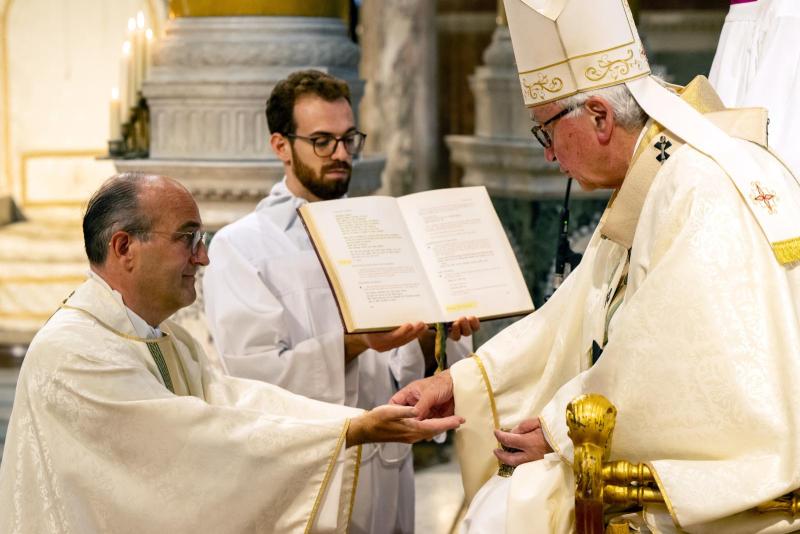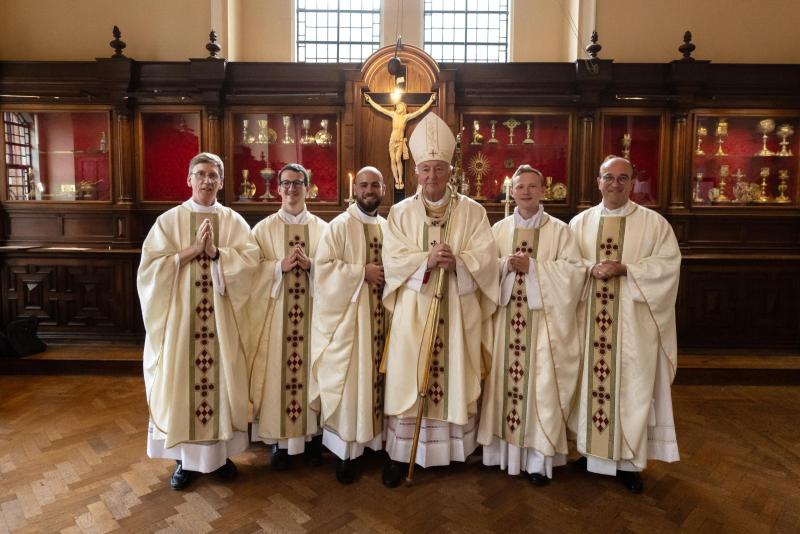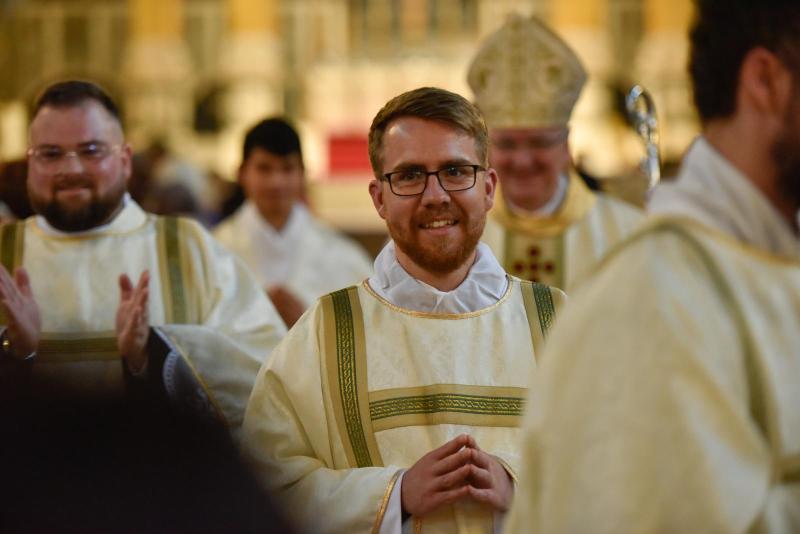What are the signs that God might be calling me to the Permanent Diaconate?
The permanent diaconate is open to both single and married men. If a married man is thinking about the permanent diaconate it is essential that he discerns this vocation with his wife, so that it is a decision made within the unity of one’s marriage. For the married man ordination to the diaconate is meant to grow out of and complement his marriage.
Below are just some of the signs which could show that God might be calling you to the permanent diaconate. The paragraphs about marriage obviously apply only to those who are married. If you are interested in finding out more about the permanent diaconate then talk firstly to your parish priest and then get in touch with your diocesan Director for Permanent Deacons.
A stable and supportive marriage – No marriage is perfect, but you and your wife must have a solid and supportive relationship. There are no major issues in your marriage that make it hard for you to communicate with each other or live your Catholic life with integrity. You are able to make this decision about ordination together in a mature way. You both believe that the commitment to the diaconate, in the time of formation and in the ministry itself, will not be an unnecessary burden for your marriage and family, but rather an enrichment.
A commitment to family and work – You love and care for your wife and family, despite the inevitable struggles. You are faithful to your responsibilities at work and you are able to give generously of your time and yourself whenever there is need.
A commitment to your Catholic faith and to your prayer life – You love your faith and it has been an important part of your life for a long time. You treasure it for yourself, you have made time to grow in your understanding of the faith, and you long to share it with others. You try to pray within the circumstances of your working life. You value prayer and have a love of the Scriptures. You appreciate in a personal way the importance of the sacraments, especially of the Mass.
A desire to serve – You have already shown a commitment to serve others in different ways, in the parish or in other voluntary situations. You have the time and energy and proven capacity to work for others and to work willingly. You have a desire to serve others more wholeheartedly, as a vocation. You are drawn especially to the service you see in the lives of deacons: assisting at the altar in the sacramental celebrations, preaching and teaching God’s Word, leading people in prayer, and serving others in the ministry of charity. This will extend especially to the poor and the marginalised; and one of your particular responsibilities as a deacon will be to bring their needs to the notice of your parish and the wider church.
Human qualities – You have all the human qualities that will allow you to be a worthy minister in God’s Church. You have the emotional and psychological maturity to take on a new and demanding role. You are able to take the lead, and you have experience in different leadership roles. You can work well with others and win their respect.
The encouragement of others – Other people in the parish encourage you to think about the diaconate, or support you when you discuss the idea. They can see you in this ministry: they can imagine that you would do it well and that you would find happiness in it.
The encouragement of your parish priest – A key person in your discernment and in supporting you will be your parish priest. If he believes that you are being called to the permanent diaconate, and if he supports you in your application, then this is a very positive sign.
The place of celibacy – A single man commits himself to lifelong celibacy from the moment of his ordination as a permanent deacon. A married man does not – he continues to live the fullness of his marriage, but he makes a promise that if his wife dies before him he will remain celibate and will not remarry. This is a very serious commitment, especially if there are young children in the family and there is an anxiety about how they might be brought up or cared for should their mother die.
This article is adapted from the CTS booklet “How to Discover your Vocation” by Fr Stephen Wang.
